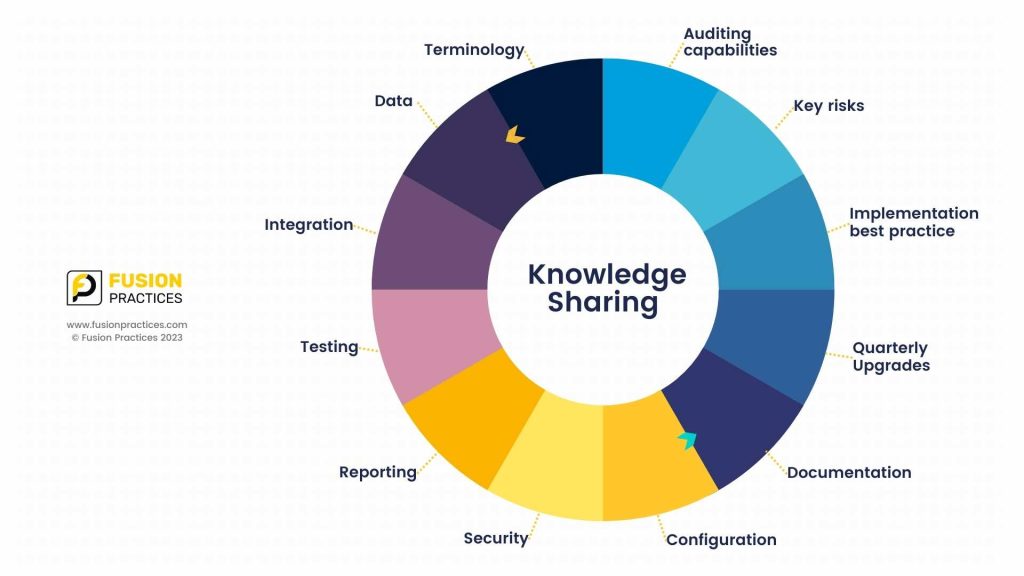Organisations invest significant resources in ERP/HR transformation initiatives, as such projects have a major impact on the overall business performance. Typically, such projects are undertaken once in 10-15 years, given the significant investment and disruption they entail. Over this period, technology advances at a rapid pace, and new approaches and methodologies for implementation emerge.
To keep pace with these changes, organisations must be willing to adapt and adopt new technologies, methodologies, and best practices. For instance, traditional waterfall approaches have given way to more agile and flexible methodologies, such as DevOps, that enable teams to collaborate more effectively and deliver results faster.
For organizations to achieve their desired outcomes from ERP/HR transformation initiatives, it is essential to comprehend the involved aspects of the transformation journey. Moreover, they need to ensure that the project is completed within the agreed timeframe and budget while meeting the desired quality standards, enabling the organization to become more agile.
We will take a closer look at how Fusion Practices can contribute to an organisation’s Business Readiness when implementing Oracle ERP and HCM Cloud. This blog post will focus on the key outcomes, functionalities, benefits and key considerations that can be expected from our introductory sessions on Oracle ERP and HCM Cloud.
Key Outcomes

- Familiarity with Oracle Cloud: By the end of the session, participants will have a good understanding of Oracle Cloud and its key functionalities. This will enable them to navigate through the implementation journey with ease and confidence, and will help in making the right decisions around processes and configurations.
- Understand Terminology: The session will provide an opportunity to understand the terminology used within the Oracle Cloud system. This will help participants to communicate more effectively with other stakeholders and understand the relationships between different modules and processes.
- Key Design Decisions: Implementing Oracle Cloud requires several key design decisions to be made such as Chart of Accounts design, financial reporting structure, jobs and positions etc. The session will provide guidance on what good design looks like and help participants to make informed decisions based on their business needs.
- Managing SI Engagement Proactively: By understanding the key components of the Oracle Cloud implementation process, participants will be able to manage their System Integrator (SI) engagement proactively. This will help them to ensure that the project is delivered on time, within budget, and to the required quality standards.
- Proactive Approach to Reporting: Effective reporting is critical for monitoring business performance and identifying areas for improvement. By understanding the reporting options available in Oracle Cloud, participants will be able to take a proactive approach to reporting and use the insights gained to drive business growth.
- Identifying Risks Proactively: Implementing Oracle Cloud can involve several risks, including dependencies, data security, system downtime, and performance issues. By understanding the potential risks and developing mitigation strategies proactively, participants will be able to minimize the impact of these risks and ensure a successful implementation.
Required Stakeholders
Successful implementation of Oracle Cloud requires input from several stakeholders. The session will provide guidance on the stakeholders required for the project, including project managers, business process champions, solution architects, system administrators and testers. By involving these stakeholders at the right stages of the project, participants will be able to ensure that the project is delivered to the required standards.

Agenda of introductory sessions on Oracle ERP and HCM Cloud
Oracle ERP and HCM Cloud are powerful tools designed to streamline business processes, improve operational efficiency, and enhance decision-making capabilities. These cloud-based solutions provide a comprehensive suite of modules that cover various aspects of enterprise resource planning (ERP) and human capital management (HCM).

Terminology
To get started with Oracle Cloud, it is important to understand the terminology used within the system. During the introductory session, we will explain key concepts such as business units, ledgers, , shared service procurement, flexfields and workflows. This will help you to navigate the system more easily and understand the relationships between different modules.
Data
Accurate and complete data is vital for the effective functioning of an ERP system, as it forms the lifeline of any organization. Improper data migration can result in loss or corruption of critical data, leading to inefficient business processes and incorrect decision-making. As part of business readiness workshops, we will help in identifying the data migration principles to be followed, explain the activities involved in data migration, typical roles and responsibilities. Session will also focus on best practices for data cleansing and data migration. This session aims to prepare a robust data migration strategy that includes data migration principles, migration objects and criteria, an approach for each migration object, a strategy for data cleansing, a reconciliation approach, a RACI matrix, and timelines. By implementing this strategy, organizations can ensure that their ERP system has accurate and complete data, leading to effective business processes and decision-making.
As part of a comprehensive data migration strategy, it is imperative to establish a data archival plan for data that will not be migrated to the Oracle ERP/HCM Cloud. This information needs to be maintained for a specific period, depending on statutory requirements. By having a robust strategy for data archival, businesses can ensure that critical information is not lost or compromised during the transition, and can be readily accessed to respond to any business or regulatory queries.
A session on data archival will help stakeholders understand the available options for data archival and reporting. This session will delve into the pros and cons of each option, ensuring that stakeholders are well-informed when making decisions regarding the organization’s data retention strategy. It will involve IT strategy and architecture teams providing guidance on organisation’s strategic databases and reporting tools.
Integration
Organizations often have multiple purpose-built applications that cater to specific business needs and processes. These disparate systems may need to exchange data with each other based on various requirements. Developing a sound integration strategy is essential to ensure that these systems can communicate effectively and exchange data seamlessly.
The integration workshop will explore various integration options that organizations can leverage, including Oracle Integration Cloud (OIC), Microsoft Azure Cloud, or continuing with existing integration platforms. The workshop will delve into different integration patterns and the pros and cons of each option. Additionally, the session will provide guidance on how to monitor integrations and implement proactive error handling to address any issues that may arise.
By attending this workshop, stakeholders will gain a deeper understanding of the integration landscape and be able to identify the best integration option for their organization’s needs. This will ultimately lead to better data flow, improved business processes, and more efficient decision-making capabilities.
Testing
Implementing an ERP system requires a comprehensive testing process to ensure the system is functioning correctly and fulfilling organizational requirements. The testing process for ERP applications differs from custom applications and requires an understanding of implementation methodology and Oracle Cloud. In a dedicated session, stakeholders will learn about testing and validation stages involved in Oracle Cloud implementation, RACI matrix, parallel runs, and resource requirements. This will help identify the necessary resources required for the testing process and ensure the implementation team does not overlook any critical aspects. A key outcome of this session will be a draft testing strategy document that can be enhanced further in the project planning phase.
Reporting
Reporting is a critical aspect of any ERP system, and Oracle Cloud provides a range of reporting options to meet your business needs. During the session, we will explain the different tools available in Oracle cloud for reports development each one suitable for a different set of stakeholders.
Security
Data and functional security is another important area to consider when implementing Oracle Cloud. We will provide a familiarization session on the security features and controls available in the system, and explain how to configure user roles and permissions to ensure data confidentiality and functional security.
Configuration
Configuration options are vast in Oracle Cloud, and it is important to understand what is possible and how to configure the system to meet your business requirements. During the session, we will explain the different configuration options available, and provide practical examples of how to configure various system components.
Documentation
To ensure a smooth implementation process, it is crucial to have the right preparatory work in place. We will explain the key process documentation required for a successful implementation, as well as the steps involved in building a reporting catalogue.
Quarterly upgrades
Quarterly upgrades are an integral part of the Oracle Cloud system, and it is important to manage them effectively to ensure that your system is always up-to-date with the latest enhancements. We will explain the best practices for managing these upgrades, and provide guidance on how to prepare for them.
Implementation best practice
There are several implementation best practices that can help ensure a successful implementation of Oracle Cloud. We will explain these practices and provide guidance on how to apply them in your business environment.
Key risks
Finally, we will also discuss the key risks involved in an implementation project, and explain how to mitigate these risks.
Auditing capabilities
We will also touch on the auditing capabilities available in Oracle Cloud, which can help you to maintain compliance with regulatory requirements and internal policies.
Conclusion
In conclusion, introductory sessions on Oracle ERP and HCM Cloud provides a valuable opportunity to gain a deep understanding of the system, its functionalities, and its implementation requirements. By attending the session, participants will be able to make informed decisions about their Oracle Cloud implementation project, manage their SI engagement effectively, take a proactive approach to reporting, and identify and mitigate risks proactively. Additionally, involving the right stakeholders at the right stages of the project will help ensure a successful implementation of the system.




